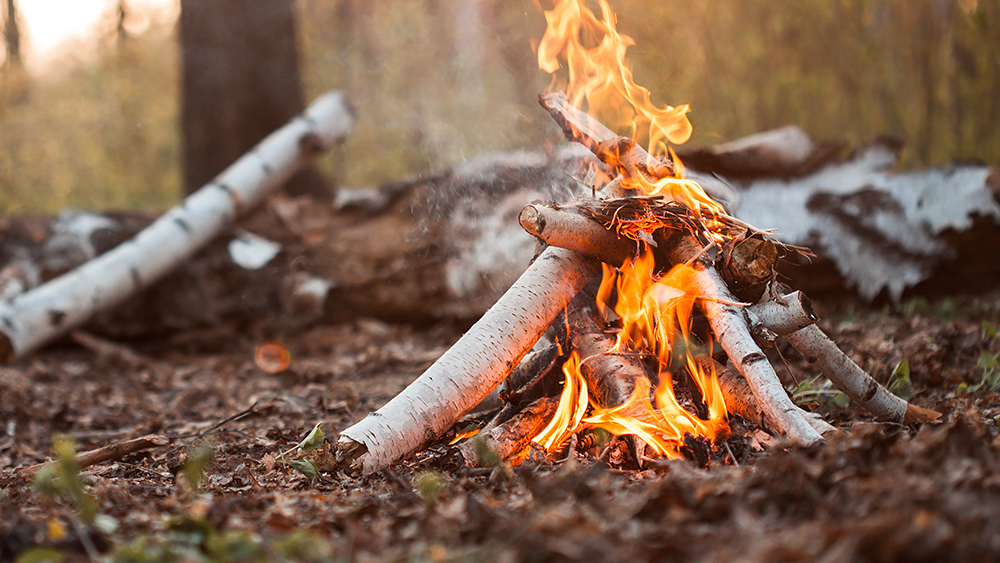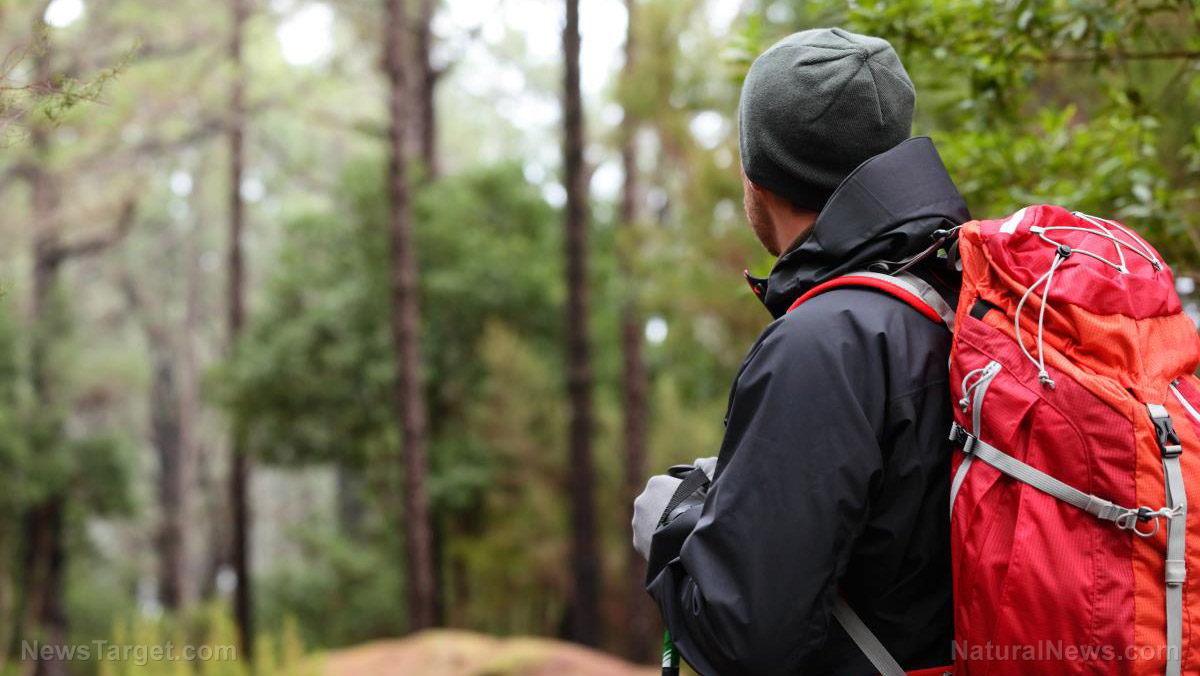
What would you do if you suddenly found yourself in the middle of the wilderness, without any supplies of your own and without anyone else to depend on?
That experience would be jarring and scary for most of us, of course -- especially for those who do not have any training or background in wilderness living.
That is the premise behind the hit reality series Alone, which drops off individuals in remote areas around the world to see how long they will last in unexplored territories.
Contrary to what most people might think, however, wilderness living isn’t really as difficult as most people make it out to be. As shown by the winners from the show, all you need is some common sense and a clear mind in order to survive an extended period of time out in the wild. (Related: Advanced prepper tips to take your prepping to the next level.)
Here are some tips gleaned from the winners of the show:
Set up shelter
Finding or setting up a shelter -- even a temporary one -- should be one's top priority in most survival emergencies since severe weather conditions can easily kill a person within a few hours if he doesn’t have anything to defend him from the elements.
When it comes to wilderness living, the best thing to do regarding shelter is to check the immediate environment and its nature, as this will dictate what type of shelter you should be making. For instance, if you are in a rocky, mountainous area, your best course of action would be to look for overhangs that you can use as a part of your shelter. If there are no overhangs that you can use, you can simply make use of fallen limbs and leaves from trees, or anything that can provide any sort of insulation. If you are in an area with a lot of pine trees, you’re in luck: pine needles make for excellent emergency bedding.
Look for water
The human body will not last more than three days without water. This means that locating a clean source of freshwater at the soonest possible time is of utmost importance.
To do this, start by observing your surroundings: can you hear the sound of flowing water? Are there any cattails, bulrushes or wild rice in the area? These are all signs that freshwater is nearby.
If you happen to be lucky enough to find yourself near a body of freshwater the only step you need to take is to boil it in order to make it potable and safe for drinking.
If there’s no water in sight, you might find it helpful to make a rain catcher out of an umbrella and a water bottle. You can also try to collect morning dew using a plastic film.
Learn how to make fire
Building a fire is one effective way to ensure one’s survival in the wild. This can be done in many different ways, such as by using flint and steel, a lens, or two pieces of wood.
Whatever method you use, always try to save coals from your last fire and keep them in a clay pot or a similar container. This will help keep the coals safe and dry until you need to use them again.
Bring a compass and familiarize yourself with the area
Whenever you are outdoors, it’s always a good idea to have a compass with you at all times, as it can save you precious time figuring out a trail towards civilization or at the very least, safety.
Aside from that, you should always take note of landmarks such as rivers, paths, distinctive trees and boulders, as these can help you figure out your location.
Set up traps and learn how to forage for food
When you are out in the wilderness, getting a hold of food can be difficult and frustrating -- especially if you don’t know what to do.
Once you have set up your shelter, try and assess your location: are there any familiar-looking plants in your surroundings? Can you hear birds in the trees? Is there a river or water source nearby? If you say yes to any of these, then you’re already one step closer to a filling meal.
Try to look at the plants in the area and identify which ones are edible and which ones aren’t; if you can, try to climb up trees to check for nests and eggs; try taking a dip in the water to see if there are fish or animals you can trap.
Once that’s settled, try making simple traps so that you wouldn’t have to rely on just one single food source.
Good traps to make are gill nets, trout lines, snares and deadfall traps since these can all work even when unattended.
TIP: Don’t just make one at a time, since you would need to have multiple avenues of automatic food collection working at all times to keep yourself full and healthy. If you notice that a particular trap or rig isn’t regularly productive, try moving it to a new location.
Learn how to cook in the wild
Caught some good fish and game? Found some fruits, wild vegetables and grain? That’s good -- all you have to do is prepare and cook them properly.
This is incredibly important since you cannot be entirely sure if the food items you have gathered are free from any parasites and any natural toxins. When cooking meats, for instance, it is best to just err on the side of safety and cook it until it is well done or until the center is evenly browned, at the very least. For plants, make sure they don’t smell like almonds -- a sure sign of cyanide.
Getting lost in the wilderness can be a daunting experience, especially if you aren’t really familiar with the environment. Surviving the experience, however, can be easy -- provided, of course, that one doesn’t panic but instead, keeps a clear mind.
Want to know more about how to survive in the wilderness? Visit Survival.news for more informative articles.
Sources include:
Please contact us for more information.





















